Dacher Keltner How much awe and wonder do you experience in your life? From The John Templeton Foundation, our sponsors at The Science of Happiness, The Templeton Ideas Podcast explores the most awe inspiring ideas in our world, with the people who investigate them. Host Tom Burnett sits down with inspiring thinkers like Alison Gopnik, David Brooks, Tyler Cowens, and Gretchen Rubin to discuss how their investigations have transformed their lives and how they may transform yours. Learn more at templeton.org/podcast.
[Ad Plays]
Youngmi Mayer All my life, and then most of my 20s, I only worked in restaurants. And, what happened in my early 20s is I met my ex-husband—well, now he’s my ex-husband—and he became very successful as a chef. And that was very early on when I was young, and so basically that sort of took over my entire life and I really fell into the caretaker role without really thinking about it. And all my actual dreams and who I wanted to be sort of had to take a backseat.
So, that’s how I was living my life until I would say around three years ago. I had a wonderful therapist and I remember walking in one day and I said, “I really want to be a stand-up comedian.” And that was the first time that I had said that in my entire life. Like, I had been holding it in for like 30 years. It just kind of exploded out of me. And then after I said it out loud, literally the next day, I started doing open mics and I just never stopped.
Dacher Keltner What happens when we do the difficult task of imagining our ideal selves: what life could be? What realizations can this thinking push us towards?
I’m Dacher Keltner. Welcome to The Science of Happiness, and happy new year. We’re all hoping for a brighter and smoother 2022, and in that spirit, today we’re exploring the science of optimism and hope.
We’re joined by comedian Youngmi Mayer. She tried a practice where she spent a week imagining her best possible future self. Youngmi co-hosts the podcast Feeling Asian, where she and fellow comedian Brian Park talk about dating, family, mental health and finding humor and joy during these particularly complex times.
Later in the show, we’ll look at how visualizing your ideal future can affect your cortisol, your body’s main stress hormone.
Youngmi, thanks for joining us on The Science of Happiness.
Youngmi Mayer Thank you so much for having me. I’m so excited.
Dacher Keltner On your podcast, Feeling Asian, you dig into the hard stuff: feeling anxious and dealing with trauma and misogyny. Being a single mom in New York. What’s it been like for you to share that with the world?
Youngmi Mayer I’m working on not seeing this as a bad trait, but I’m like an oversharer. I’m the queen of TMI. But that’s just a core part of my personality, which is actually great for a podcast about emotions, because I think people hearing my openness about talking about things that are kind of embarrassing or painful—it kind of gives them the right to say that to themselves.
Dacher Keltner For our podcast, you did a 180 and dug into the good stuff. You chose to try the Best Possible Self practice, where you think about your brightest future and then you write about it for a certain amount of time each day, for a week. Why did you choose this practice?
Youngmi Mayer You know, I chose this practice because recently, three years ago, I did set out on this journey to achieve my quote unquote dream or become who I really wanted to be. And that has been really on my head now because for the first time, I am seeing a little bit of progress in my career that I’ve chosen. And, part of the reason I chose the practice was because I was like, I want to write a goal down and see what that is because I’m not that kind of person. So I wanted to be like, Oh, I’m going to do this practice and I’m going to have something like not so abstract that I can sort of move towards so I can see what that even is.
Dacher Keltner And more specifically, you know, the practice asks you to—and it’s actually really useful: you pick different domains of your life like, you spoke, Youngmi, about your career and this transition you’re going through or you think about your relationships or your health or hobbies and you write down some things that will get you to that best possible self. What did you write about? What were some of the goals?
Youngmi Mayer So when I was reading the practice, it said you know to look at the different facets of who the best possible self would be in terms of all these other areas. But I found myself going back over and over again to my career, actually, and I had to really force myself to kind of steer myself away from that and sort of see the other aspects of my life. But I made this discovery and it made me very happy that what I want to achieve in my career—I am on that path. And I am making the steps to make that possible.
Dacher Keltner Wow. It’s interesting because part of what these practices can do, you know, like a gratitude practice or an awe practice and in your case is like, hey, you’re actually getting close to it or you’re on the trajectory. Does that surprise you? Did you think you were further away than what the practice revealed?
Youngmi Mayer I guess the surprise was that I actually do know what I want—it’s like the therapy session all over again. I always knew that I wanted to be a stand-up comedian. I just never said it out loud, you know? Like, since I was like a kid, that’s always what I wanted. And so then, doing this practice, I was like, Oh no, I do have a goal. It’s just that I was like too embarrassed to admit it to myself because it’s embarrassing. But, I do have a very specific goal in mind and just writing that down was very empowering I think.
Dacher Keltner Cool. So, you’re busy. You got your podcast. You’re doing stand-up. Did you pick a regular time during the day to do this or more spontaneous?
Youngmi Mayer I have ADHD, so I can't, if I made a schedule, it would not happen. It would give me too much anxiety and I would just not do it. So every day was just kind of like: 1:00 a.m., “Oh, I’m going to do it now, I guess.” It’s kind of like that.
Dacher Keltner You know, one of the things that often happens when I teach this at Berkeley and I have students write about best possible selves is, it gets kind of emotional—like this sense of what they really care about or what they value surfaces. What happened with you in terms of possible values surfacing in the practice?
Youngmi Mayer I found sort of like a value that I respect and it’s really embarrassing. But, I’m going to say it because I feel like this is, you know, why I did this: is that I kept writing down like: okay, if I see myself like the best possible self that I want to be, I am that person, like I. There are all these abstract things like, I want to be the kind of person that has confidence, is not embarrassed to be who I am in front of people.
I’m funny and I’m smart, and I’m confident in that and I’m willing to show people that. But I think the difference from where I am now to what I imagine my best possible self being—this is the embarrassing part—is that I am at a level of like more fame or a place where more people can see me, and I like really want that. Doing this exercise, I felt that way and it was, you know, very uncomfortable as a realization. It was almost like, I am who I really want to be and how I see myself. It’s just I want more people to see me.
Dacher Keltner Well, I think with the kind of comedy that you offer that gives people a perspective on their identities, I think that’s a well-deserved value. As you wrote about kind of the best possible self—finding a bigger voice as a comedian—did the themes change over the course of the week? Did the quality or feeling change?
Youngmi Mayer Because so much of my writing was focused on my career, I realized that I didn’t really answer the other parts of the question: like how I see myself like in a living situation or other relationships that I might have with my family. And, one of the days, I had a phone conversation with my friend and we did the exercise together, and he told me that his like idealized self would own a home and he wanted to own a home where he could let his friends stay there and help them if they needed. And, so then I started thinking about the other parts of that question in that sense. And then I think when I heard his answer, I was like, oh, those are all other things that are very important to me as well.
Dacher Keltner One of the really interesting things about this practice—it brings in complexities that you’ve talked about is you know the ideal self that you’re moving toward in this practice and more generally has certain risks associated with it or certain traps, right? You know, you aspire for things you can never achieve. A lot of people talk about the ideal self in terms of almost like this voice from their parents that sort of says, “Well, you always could be better—you should be better.” And, it could create anxiety. I’m curious, you know, how you grappled with that or did you encounter that kind of dynamic as you wrote about this best possible self?
Youngmi Mayer I don’t know if I felt anxiety. I did judge myself a lot.
Dacher Keltner How so?
Youngmi Mayer Well, you know, just like what I mentioned earlier, like: “Oh, I can’t believe I want that. That’s so embarrassing.” Like I did judge myself in that way. But, I feel like I’m just old enough not to—to know that deeply inside what I want versus what my parents or what other people would want from me.
Dacher Keltner One of the things that’s important in this practice is to move from the ideal and kind of the future to like, “All right, how do I find this now?” You know? How do you find these opportunities for expressing your best possible self? When I think about it, like during COVID, I felt a little blue like a lot of people and just getting back and teaching, you know, just like—“Wow,” teaching again and speaking and sharing ideas with students got me back to what I would think of as my best possible self. I’m curious about you. Where do you find it?
Youngmi Mayer My big obstacle—and this exercise really helped with that because I wrote something down, and I wrote my best possible self in my career down, and I was like, I have the ability to do this and I have the opportunity to do this right now—but the obstacle is that I have this fear of success, which I’ve discovered through therapy. Where I had this like, I am terrified of doing well. And so it’s kind of like, I sabotage myself. So if I am given an opportunity or a chance, I just don’t do it because it makes me too scared.
You know when you’re scared to check the mail because you think you have a horrible bill and you like put off checking the mail and it’s ruining your life. And it’s been like three months now and the mailbox is overstuffed and you’re like, “I don’t want to look in there because I know it’s going to be that hospital bill.” It’s like twelve hundred dollars and then, “I don’t have twelve hundred dollars” and then you finally go in the mail and it’s like, “Hey, by the way, your bill was a hundred and fifty dollars because your old insurance kicked it,” and you’re like, “Why did I ruin my life for like two months? I could have just checked the mail.” I feel like that’s, that's what this exercise helped me—it stopped me from doing that.
I was like, okay, this is in my reach and I can do these steps to go through it. And I think just, I actually said that out loud to my friend and I found—I think just doing this exercise, writing down what I wanted and seeing that, yeah, I can achieve this. All I have to do is push through this. That’s kind of how I found the ability to like work at it more.
Dacher Keltner Amazing. Well, Youngmi Mayer, I want to thank you for your comedy, for doing the practice, and being with us today. Thanks so much.
Youngmi Mayer Thanks for having me.
Dacher Keltner Up next, our Senior Producer Shuka Kalantari reports on how spending time really thinking about your best possible self affects your body’s stress hormones.
Madelon Peters It’s very difficult to disentangle the cause and consequences of health and optimism. And by making people at least temporarily more optimistic, you can really see if there’s a causal connection between this optimistic feeling and this physiological stress response.
Dacher Keltner More, after this break.
[Ad Plays]
Welcome back to The Science of Happiness. I’m Dacher Keltner. We’ve been exploring how to visualize our best possible future selves as we step into the new year. The benefits of this kind of optimistic thinking are kind of amazing. It has been shown to help improve moods, regulate emotions, and help people better cope with chronic pain.
Our Senior Producer Shuka Kalantari reports on how this practice affects cortisol—the main hormone that regulates our stress levels.
Shuka Kalantari Imagine you’re standing in front of a large audience, and two stern-looking judges tell you that you have to take a mental arithmetic exam: start with the number 700, subtract 11, and then keep going.
Madelon Peters So, 700 minus 11 and then again, minus 11 until the end, for five minutes. And whenever they made a mistake, one of the jury members said, “Wrong. Start again.” So, it was really a kind of tense atmosphere.
Shuka Kalantari Madelon Peters set up this stressful situation. She’s a psychologist and Chair of Experimental Health Psychology at Maastricht University. She conducted an experiment to measure if spending quality time really thinking about your best possible self can affect your stress levels when faced with situations like that.
Madelon Peters And what we did was, we first invited the participants to the lab and let them write for 15 minutes: a story about their best possible self or about their daily life.
Shuka Kalantari Participants then went home with instructions to visualize what they wrote about every day for two weeks.
Madelon Peters So just five minutes, for instance, before they went to bed: just have a vivid imagination of this very good future or of their daily life.
Shuka Kalantari Throughout the experiment, everyone had to measure cortisol levels. Cortisol is a hormone produced in the adrenal glands, two organs right above the kidney that really go into overdrive when we’re in “fight or flight” mode.
Madelon Peters And so it’s often called a stress hormone, because in times of stress, your body starts producing more cortisol.
Shuka Kalantari Consistently high cortisol levels can lead to things like high blood pressure, heart disease, and osteoporosis. After two weeks, everyone returned to the lab and did that mental math exam—the one in front of an audience with the two grave judges. Afterwards, they all checked their cortisol levels again.
Madelon Peters We found that participants in the best possible self condition, compared to the typical day, produced less cortisol in the lab during the task and it went back to baseline faster than in the typical day conditions. So, the total amount of cortisol produced was less.
Shuka Kalantari People who did the best possible self exercise also had lower cortisol levels when they woke up in the mornings.
Madelon Peters We see often that people who are more stressed have a higher awakening cortisol response, so there’s a higher peak in the morning. In addition to that, we also found that people said they felt less stress in the two weeks they had done the best possible self compared to two weeks before they did the exercise.
Shuka Kalantari One reason may be that simply imagining an ideal future provides a clearer picture of where we want to go, so we can take steps towards it. And that in turn makes us feel more confident. Another reason may be that it’s helping us train our brains to think happier thoughts.
Madelon Peters By repeating this daily exercise, it becomes more habitual to think in a positive manner and you actually create some memory traces—which in times when you experience a problem—are more easily accessible. So it’s more easy when you encounter a problem to think, “Okay, my future is still bright and it will still work out fine.” So that is kind of a practice exercise in positive thinking, which helps you in difficult circumstances.
Shuka Kalantari On our next episode of The Science of Happiness, we’re revisiting one of our favorite and most popular episodes. We explore the science of how music can make us feel calm, relaxed, and even soothe us to sleep.
Rosey Chan What I’m trying to create is a kind of musical pharmacy without sounding too clinical about that. Because I do genuinely believe that music is a healing tool.
Dacher Keltner Thank you, Shuka. I’m Dacher Keltner, thanks for joining us on The Science of Happiness. We have instructions for the best possible self practice online at ggia.berkeley.edu.
Our Senior producer is Shuka Kalantari. Our producer is Haley Gray. Our Associate producer is Kristie Song. Sound design by Jennie Cataldo at BMP Audio. Our editor in chief is Jason Marsh. The Science of Happiness is a co-production of UC Berkeley’s Greater Good Science Center and PRX.



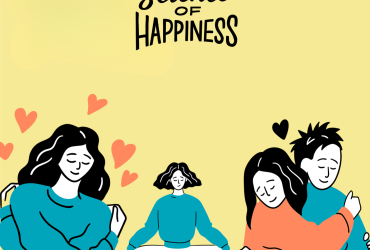
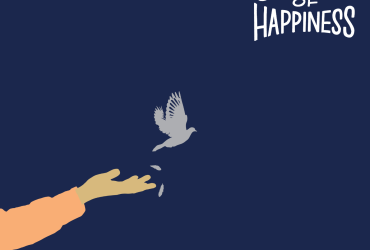

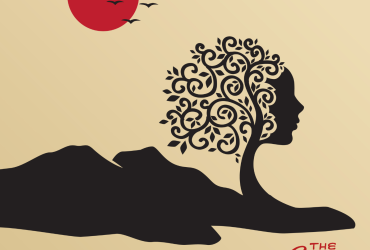
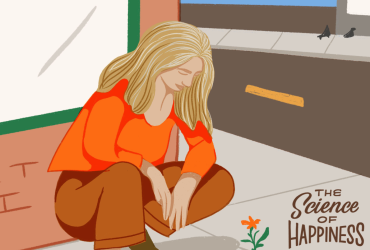
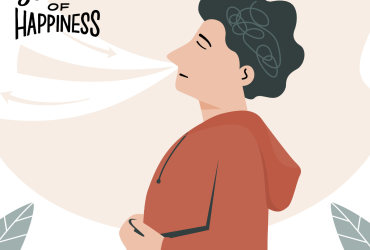
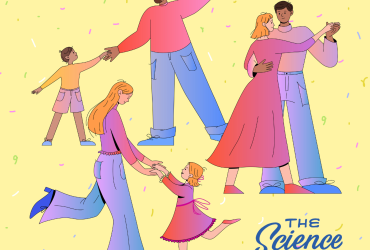
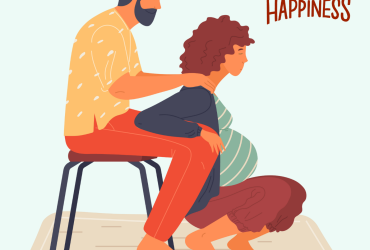
Comments